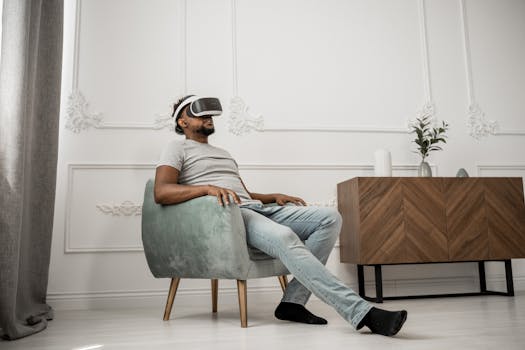
Smart Homes and Smart Living: The Technological Transformation of European Homes by 2025
Smart Homes and Smart Living is the future of European homes, and it’s arriving sooner than we think. By 2025, the technological transformation of homes is expected to revolutionize the way we live, interact, and experience our living spaces. This transformation is driven by advancements in artificial intelligence, the Internet of Things (IoT), and smart home devices, which are increasingly becoming an integral part of modern homes.
Introduction to Smart Homes
A smart home is a residence that has been equipped with advanced technologies and devices to provide a more comfortable, convenient, and secure living experience. These devices can be controlled remotely using a smartphone or voice commands, allowing homeowners to manage their homes from anywhere. From thermostats and lighting systems to security cameras and door locks, smart home devices are designed to make life easier and more enjoyable.
The Technological Transformation of European Homes
The European home is undergoing a significant transformation with the integration of smart technologies. According to a recent report, the European smart home market is expected to grow significantly by 2025, with an estimated 50% of households adopting smart home devices. This growth is driven by increasing demand for convenience, energy efficiency, and home security.
Benefits of Smart Homes
Smart homes offer numerous benefits, including increased convenience, energy efficiency, and home security. With smart home devices, homeowners can control their lighting, heating, and cooling systems remotely, reducing energy waste and saving money on utility bills. Smart security cameras and door locks provide an added layer of security, giving homeowners peace of mind when they’re away from home.
Challenges and Limitations
While smart homes offer many benefits, there are also challenges and limitations to consider. One of the main concerns is the potential for cybersecurity breaches, as smart home devices can be vulnerable to hacking. Additionally, the high cost of smart home devices can be a barrier for some homeowners, making it difficult for them to adopt these technologies.
Conclusion
In conclusion, the technological transformation of European homes is underway, and it’s expected to revolutionize the way we live, interact, and experience our homes. With the increasing adoption of smart home devices, homeowners can enjoy increased convenience, energy efficiency, and home security. However, it’s essential to address the challenges and limitations associated with smart homes, such as cybersecurity concerns and high costs, to ensure that these technologies are accessible and beneficial to all.
Future of Smart Homes
The future of smart homes is exciting and full of possibilities. As technology continues to evolve, we can expect to see even more innovative smart home devices and systems that make our lives easier and more enjoyable. From voice-controlled assistants to augmented reality interfaces, the possibilities are endless, and it will be interesting to see how smart homes continue to shape the way we live and interact with our surroundings.
Impact on Society
The impact of smart homes on society will be significant, with the potential to improve quality of life, reduce energy consumption, and increase home security. As smart home technologies become more widespread, we can expect to see a reduction in energy waste, lower utility bills, and a decrease in crime rates. Additionally, smart homes can help to support independent living, enabling elderly and disabled individuals to live safely and comfortably in their own homes.
Real-World Applications
Smart homes are not just a concept; they are a reality that is already being implemented in many parts of the world. For example, in the UK, there are already several smart home developments that showcase the latest technologies and innovations. These developments include features such as smart thermostats, voice-controlled lighting systems, and advanced security cameras.
Smart Home Devices
There are many smart home devices available on the market, each designed to provide a specific function or benefit. Some of the most popular smart home devices include smart thermostats, smart security cameras, smart door locks, and smart lighting systems. These devices can be controlled remotely using a smartphone or voice commands, making it easy to manage and monitor your home from anywhere.
Smart Home Systems
Smart home systems are designed to integrate multiple devices and technologies to provide a seamless and convenient living experience. These systems can include features such as voice control, remote monitoring, and automated scenes, which allow homeowners to customize their living environment to suit their needs and preferences.
Energy Efficiency
One of the key benefits of smart homes is energy efficiency. Smart home devices can be programmed to optimize energy consumption, reducing waste and saving money on utility bills. For example, smart thermostats can learn a homeowner’s schedule and preferences, adjusting the temperature accordingly to minimize energy use.
Home Security
Smart homes can also provide an added layer of security, with features such as smart security cameras, door locks, and motion sensors. These devices can be controlled remotely, allowing homeowners to monitor their property and receive alerts in case of any suspicious activity.
Comfort and Convenience
Smart homes are designed to provide comfort and convenience, making it easy to manage and enjoy your living space. With smart home devices, homeowners can control their lighting, temperature, and entertainment systems with ease, creating a personalized and enjoyable living experience.
Health and Wellness
Smart homes can also have a positive impact on health and wellness, with features such as air quality monitoring and automated lighting systems. These devices can help to create a healthy and comfortable living environment, which is essential for both physical and mental well-being.
Sustainability
Smart homes can also contribute to sustainability, with features such as energy-efficient devices and recycling systems. These devices can help to reduce waste and minimize the environmental impact of our living spaces, which is essential for a sustainable future.
Accessibility
Smart homes can also improve accessibility, with features such as voice-controlled devices and automated systems. These devices can help to support independent living, enabling elderly and disabled individuals to live safely and comfortably in their own homes.
Cost Savings
Smart homes can also provide cost savings, with features such as energy-efficient devices and automated systems. These devices can help to reduce energy waste and save money on utility bills, which can be a significant expense for many homeowners.
Increased Property Value
Smart homes can also increase property value, with features such as smart home devices and automated systems. These devices can make a property more attractive to potential buyers, which can increase its value and appeal.
Smart Home Technology
Smart home technology is constantly evolving, with new innovations and devices being developed all the time. From voice-controlled assistants to augmented reality interfaces, the possibilities are endless, and it will be interesting to see how smart home technology continues to shape the way we live and interact with our surroundings.
Future Developments
The future of smart homes is exciting and full of possibilities. As technology continues to evolve, we can expect to see even more innovative smart home devices and systems that make our lives easier and more enjoyable. From smart home robots to autonomous vehicles, the future of smart homes is looking bright, and it will be interesting to see how these technologies continue to shape our lives and living spaces.
Conclusion
In conclusion, Smart Homes and Smart Living is the future of European homes, and it’s arriving sooner than we think. With the increasing adoption of smart home devices, homeowners can enjoy increased convenience, energy efficiency, and home security. As technology continues to evolve, we can expect to see even more innovative smart home devices and systems that make our lives easier and more enjoyable.




